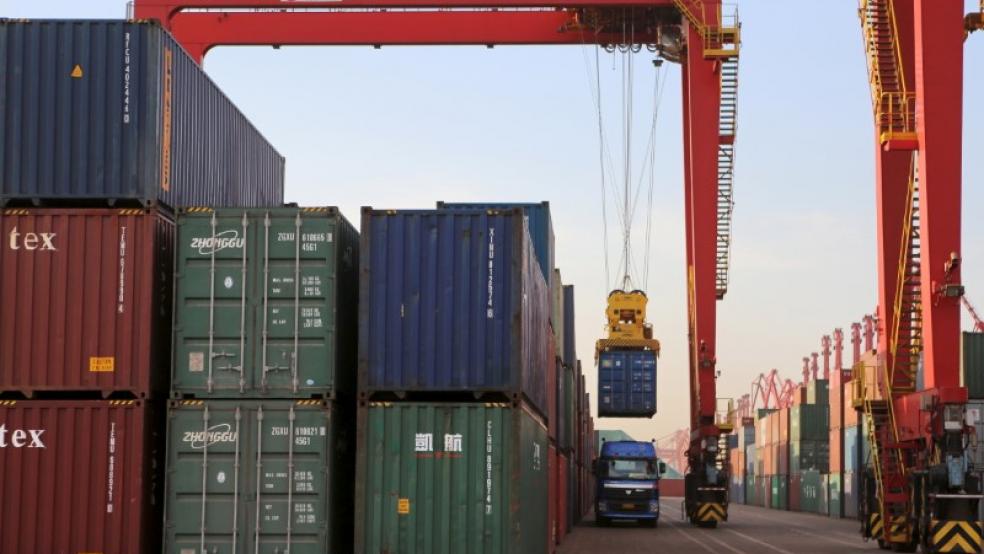Now that the stock market has ended its foolish careening in response to China’s modest, sensible adjustment in its exchange-rate mechanism, where are we? To borrow from Donald Rumsfeld’s famous observation about defense planning, there’s what we know, what we don’t know, and what we don’t know we don’t know.
Unfortunately, the first category of knowledge isn’t very impressive and latter two are huge. In a century as complex as the 21st has already proven, this is perilous.
The most obvious example: It’s now clear many powerful people in government, politics, and the markets don’t know anything about China. Worse, they don’t know they don’t know anything about China.
Related: Walker Jumps on Trump’s Anti-China Bandwagon
There’s no other way to explain (1) the market panic following China’s 1.9 percent devaluation earlier this month, and (2) Chuck Schumer’s diatribe about a currency war that never was and the irrational responses of various presidential aspirants.
The paranoid misread of Beijing’s minor, quite beneficial adjustment in its currency policies is but one case of a prevalent refusal to see the world beyond America’s shores—all of it—as it is. There’s no future in this stance, to put the point mildly.
Now that it’s behind us, there are lessons to draw from the debacle of the past two weeks. Let’s consider three.
Lesson No. One: It’s time to address the ignorance of China we’ve just seen on display. It’s a long-term project, given that the West as a whole hasn’t understood the mainland at all well at least since the Opium Wars of the 1830s and 1840s.
This is pressing now because incomprehension jeopardizes America’s leadership position. Like it or not, and many Americans don’t, the People’s Republic is already a global power and will grow ever more influential in this role. Working with China is tomorrow, working against it, yesterday.
Related: China’s Economy May Be in Better Shape Than We Think
Think of it this way: There’s not much distance between some Republican presidential hopefuls, Schumer, a prominent Democratic senator who cast China as an adversary intent on doing America in through cyber espionage, and the Obama administration in its effort to undermine Beijing’s new Asian Infrastructure Investment Bank last spring.
Closer to the trading floor, just because share trading is globalized doesn’t mean all equity markets are more or less the same. Asia’s markets either matured late or are still maturing, and they play a different role in capital formation than markets in the West. We have to learn how to read them accurately.
Anyone who knows the Asian equity scene knows it has a casino gambling aspect typical at this stage of development. As Nicolas Lardy, a sinologist at the Peterson Institute pointed out in The Times last week, the rout in Shanghai reflects not weakness in the Chinese economy so much as millions of small-time, first-time panicked investors—as they should be—because they’re overextended. “False alarm,” as the headline on Lardy’s piece put it.
Lesson No. 2: A careen is not a crisis, but we’re no more ready to manage another of the latter than we were in the summer of 2008. Two factors leave us nowhere near where we need to be on this point, given our economy’s exposure in China and other emerging economies.
Related: Why China’s Slowdown Will Lead to Sustainable Growth
Ideology and lobbyists: These are the factors.
You may favor a balanced-budget amendment, as John Kasich does, but I’m with Paul Krugman on this point: Where would George W. Bush have been had such a law prevented him from structuring a bank bailout in 2008? And would Obama have been reelected had he not been able to support that policy with temporary deficit spending? Another good question: Can anyone credibly argue anymore that self-regulation on Wall Street has proven a winner?
Time to take a lesson from none other than the Chinese: “Seek truth from facts,” as Deng Xiaoping, hero of all free-marketeers, urged as he got his “socialism with Chinese characteristics” back in the late-1970s. The fact here is we’re letting beliefs and Wall Street lobbies take the place of hard, clear thinking as to how to manage another financial crisis, if not avoid one.
The No. 3 lesson: The current presidential campaigns—those of both parties—are taking place too far from 21st century realities to do the nation any good. Based on what we’re hearing now, who among the candidates has a sophisticated, useful take on China--a policy mix that will advance the relationship?
Related: China Stocks Rise on Signs of Government Support
Trump says it’s time to face off with Beijing, with faint echoes of Hearst’s “yellow peril” in his stump speeches. Scott Walker tells Obama to cancel President Xi Jinping’s state visit in September in response to a stock market correction. Hillary Clinton bobs and weaves, while Bernie Sanders doesn’t say much of anything.
You can’t dismiss this as just politics. Our leaders and would-be leaders take large, unnecessary risks with our future as they decline to put 21st century realities before us because they are unwilling to take political risks to themselves that are penny-ante in the scheme of things.
Where’s the sense of proportion here? I see little to none—about as much as we’ve all seen lately in the share markets.






